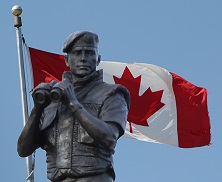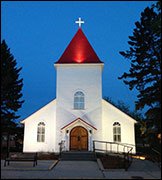True and Fascinating Canadian History
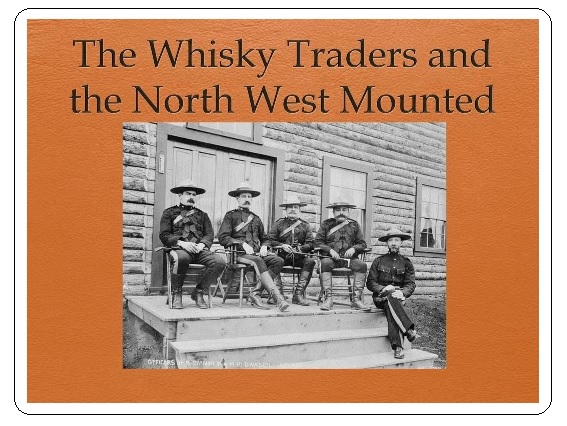
Vet of the Month: October, 2021
O.1, Lieutenant Colonel George Arthur French
RCMP Vets. Ottawa, ON
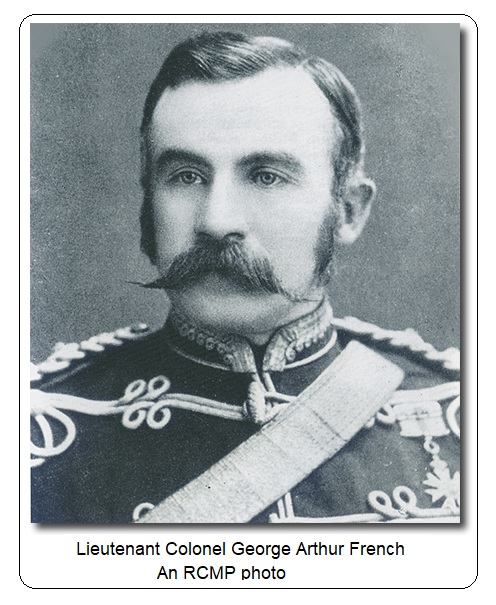
Lieutenant-Colonel George Arthur French replaced NWMP Acting-Commissioner Osborne William Smith at Fort Garry in October, 1873. However, even to this day, historians question French's leadership style, and whether or not he was the right leader for the March West in 1874. There are pros and cons. On the one hand, French was a graduate of the British military school system and an autocratic leadership style was not only in vogue but expected and widely exercised. His air of superiority might have chafed some staff and, among civilians, he may have spoken too bluntly. He could have easily annoyed and irritated people. On the other hand, the Officers under his command were men with a wealth of experience and they too held judgements, valuable ideas and advice which could have been useful, if they had been asked. French's accomplishments cannot be diminished, but whether or not he was truly the appropriate choice for leading the March West is still debatable.

French's upper class pedigree is well documented. He was born at Roscommon, Ireland on June 19th, 1841, and he received his education at the Royal Military College in Sandhurst, and the Royal Military Academy in Woolwich, England. He was Commissioned in the Royal Artillery in 1860. In a military environment, leaders are taught that authority and knowledge flow from the top downward, and that subordinates have little to offer. French immigrated to Canada, and, in 1862 he married Janet Clarke Innis in Kingston, ON. It is only speculation, but PM John A. MacDonald and French might have crossed paths in Kingston as both were residents of the city. In 1870, Britain relinquished control of its mililtary weapons and installations, and it was French who supervised their smooth transition from British control over to Canada. French was living in Canada as a British subject, and rather than allow French to return to England, the Prime Minister told London that French's professional services were required in Canada. The PM saw him as a valuable asset. The PM's decision to retain French caused a minor fuss between England and Canada, but it was soon over, and the upshot was that French remained in Canada. Not long afterwards in 1873, the creation of the NWMP received Royal Assent, and French landed the job as its first Commissioner. French was reputed to have a demanding personality, but there were no indications at the time that his leadership style would rattle powerful bureaucrats or that he would make enemies among some influencial politicians in Ottawa.
French led the March West, and under his command the NWMP exceeded its mandate; the Force developed a visible presence in the west, set about building new detachments, and reduced unlawful activity by targetting criminals entering Canada from the south. In his widely known book written in 2017 entitled, The North West Mounted Police 1873 to 1885, Canadian author Jack Dunn wrote of the NWMP's favourable outcomes, "The Mounted Police successfully crossed the plains, established permanent bases at Fort Macleod and Swan River, and within months curtailed the whiskey trade." (Dunn: 29). However, French was of the opinion that Ottawa did not sufficiently measure the solid achievements realized by the NWMP during and post the March West. He let his feelings be known. He seemingly annoyed bureaucrats, and in turn, they claimed that French opposed government policy, and he was slow to implement them. Jack Dunn wrote, "In a letter to the Minister of Justice, French had berated the government for denying any recognition of the Force's achievements." (Dunn: 29). As the months went by, it is hard to imagine that French did not realize that his opponents in Ottawa were considering his replacement.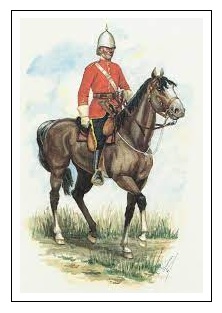
George Arthur French was reputed to be blunt, and nothing was lost on his legitimate authority or high expections of those under his command. In some quarters, his reputation was quite favourable. After an inspection tour of NWMP posts in the summer of 1875, Major-General Shelby Smyth, Commanding General of the Canadian Militia gave French a glowing report which essentially said that French had provided a valuable service to the Dominion. However, Ottawa disagreed and Smyth's report did little to quell dissatifaction in the corridors of power back east. Jack Dunn reported that, "This positive endorsement [by Smyth] of the NWMP countered what many of French's detractors in Ottawa wanted." (Dunn: 29). Ottawa politics did not come under French's preview, he was too far away, and he was powerless to overcome whatever future plans Ottawa had in store for him. French requested that he be allowed to visit Ottawa and to explain his thoughts, but his request was denied. Dunn wrote, "In March, 1876, Edward Blake, the Minister of Justice refused a request by French to come to Ottawa to discuss concerns. Even though French offered to pay the travel costs, several further requests were dismissed. Apparently, the government's mind was set." (Dunn: 29). Ottawa felt that French placed too high a priority on his own self-worth, and he had over-measured his own importance.
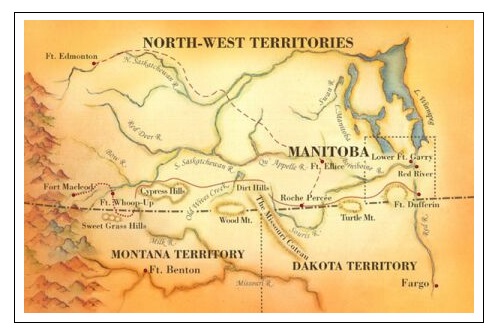
In the book about the early years of the NWMP entitiled, The Silent Force, author T. Morris Longstreth described French, "The new commissioner [French] was an Irish gentleman, only thirty-two years of age with a Sandhurst-Woolwich training ... He was the precisely the man desired. Tall, soldierly, a sportman, appreciating the humourous, no dyspeptic martinet, yet entirely intolerant of ship-shod performance, he possessed the ambition and the powers to take over a crowd of rookies and turn them into a corps of riflemen." (Longstreth: 12). Leadership qualities attributed to French would have made him unpopular within the ranks. Some men saw themselves as experienced and as mature as French, and they too possessed independent thinking capabilities. Given an opportunity, some Officers as well as junior ranks would, without any doubt, speak their piece. And they did so. During his tenure, controversy swirled around French's autocratic leadership style, and it was no secret that he and Ottawa were on opposing sides. It became apparent that they could not come together. Some NWMP thought it was just a matter of time before French was dismissed. Author Jack Dunn wrote, "From the beginning of the '74 March, criticism mounted over his strict discipline." (Dunn: 29). Dunn summarized the thoughts of a few constables, one of whom said that French resigned just in time from the government dismissing him, and another said that French was void of human feelings. (Dunn: 29-30). In all fairness, however, the lower ranks in the NWMP may not have fully appreciated the uphill struggles which faced the Commissioner. He reported shortages in food, arms, ammunition, horses and new recruits. In 1875, Canada was in midst of a severe economic downturn, and it was not a good time to ask for additional support for the NWMP. However, he made headway when he returned to Ottawa to plead for recruits. Jack Dunn wrote, "...French succeeded in getting approval for the NWMP to add three additional Divisions, in effect doubling its manpower." (Dunn: 27).

Senior NWMP Officers, as well as other ranks, held diverse viewpoints on French's leadership style. Some constables thought that he was heartless and without feeling, while others thought that he was an excellent Commissioner who held the welfare of the NWMP close to his heart. George Auther French is portrayed as a very honourable man, but he was not perfect. He was highly educated, and he had extensive experience with military affairs. Unquestionably, he held the interests of the NWMP high among his priorities, and his good intentions for the Force were never questioned. But, French underestimated the influence of Ottawa bureaucrats, and he would have been more successful had he garnered greater support from his subordinates and had he been more flexible with politicians. Politicians list priorities top to bottom, and French should have learned that his preferences were not as important as he may have thought. As a result of this miscalculation, he was forced to resign after only thirty-four months as the first Commissioner of the NWMP.
Reporting from Fort Healy,
J. J. Healy
October 23, 2021
Dunn, Jack E. (2017). The North West Mounted Police 1873 to 1885. Jack E. Dunn Publisher. Calgary, AB.
Longstreth, T. Morris. (1927). The Silent Force. The Century Co. New York.
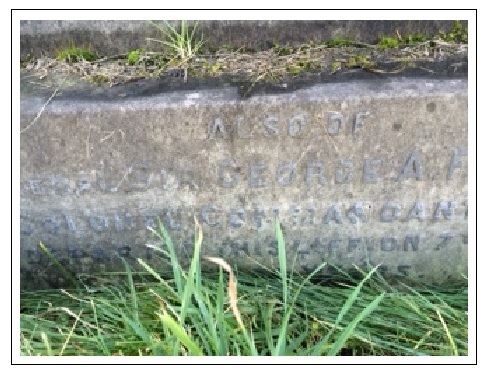
Brompton Cemetery. London, England
Courtesy of Peter German. RCMP Veterans. BC.

